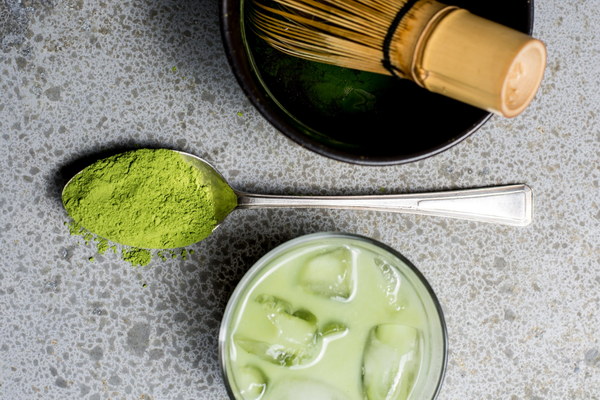Breath of Refreshment How Tea Can Nourish Your Lungs Naturally
In the hustle and bustle of modern life, taking care of our lungs often takes a backseat. However, with the right approach, a simple cup of tea can become a powerful ally in lung health. Here’s a guide on how to use tea to nourish and protect your lungs naturally.
Understanding Lung Health
Before diving into the specifics of tea and lung health, it’s essential to understand the role of the lungs. The respiratory system is crucial for oxygenating the blood and removing carbon dioxide. It’s a delicate balance that can be disrupted by pollution, smoking, and even poor diet.

The Role of Tea
Tea, with its rich blend of antioxidants, polyphenols, and other bioactive compounds, can play a significant role in supporting lung health. The polyphenols, particularly those found in green and white teas, have been shown to have anti-inflammatory and anti-oxidant properties that can help combat respiratory issues.
Types of Tea Beneficial for the Lungs
1. Green Tea: Rich in epigallocatechin gallate (EGCG), green tea is known for its powerful anti-oxidant properties. Studies suggest that regular consumption of green tea can reduce the risk of chronic obstructive pulmonary disease (COPD) and improve lung function.
2. White Tea: With a high concentration of antioxidants, white tea is considered to be the most potent among the tea family. It has been shown to reduce inflammation and may help in the prevention of respiratory infections.
3. Black Tea: Although less studied than green and white tea, black tea also contains polyphenols that can have positive effects on lung health.
4. Mate Tea: Originating from South America, mate tea is rich in xanthines, which are known to have a stimulating effect on the respiratory system. It can help clear the lungs and improve breathing.
How to Brew Tea for Lung Health
To maximize the benefits of tea for lung health, here are some tips on how to brew it:
- Use Fresh Water: Always use fresh, cold water to extract the most nutrients from the tea leaves.
- Water Temperature: Green and white teas should be brewed at a lower temperature (70-80°C or 158-176°F) to preserve the delicate flavors and nutrients. Black and mate teas can be brewed at a higher temperature (90-95°C or 194-203°F).
- Steeping Time: The longer you steep the tea, the stronger it will be. For green and white teas, 2-3 minutes is ideal, while black and mate teas can be steeped for 3-5 minutes.
Benefits of Drinking Tea for Lung Health
- Anti-Inflammatory Properties: The polyphenols in tea can reduce inflammation in the respiratory tract, which is particularly beneficial for those with asthma or COPD.
- Antioxidant Protection: Antioxidants help protect the lungs from free radicals that can cause cell damage and contribute to respiratory diseases.
- Improved Immune System: Regular consumption of tea can boost the immune system, helping to prevent respiratory infections.
- Hydration: Drinking tea, especially hot tea, can help keep the respiratory system hydrated, which is important for maintaining lung function.
Conclusion
Incorporating tea into your daily routine can be a simple yet effective way to support lung health. Whether you choose green, white, black, or mate tea, the key is consistency and enjoying it as part of a balanced lifestyle. Remember, while tea can be a helpful addition to your lung health regimen, it should not replace medical advice or treatment for any respiratory conditions. So, the next time you reach for a cup of tea, take a moment to appreciate its potential benefits to your lungs.









